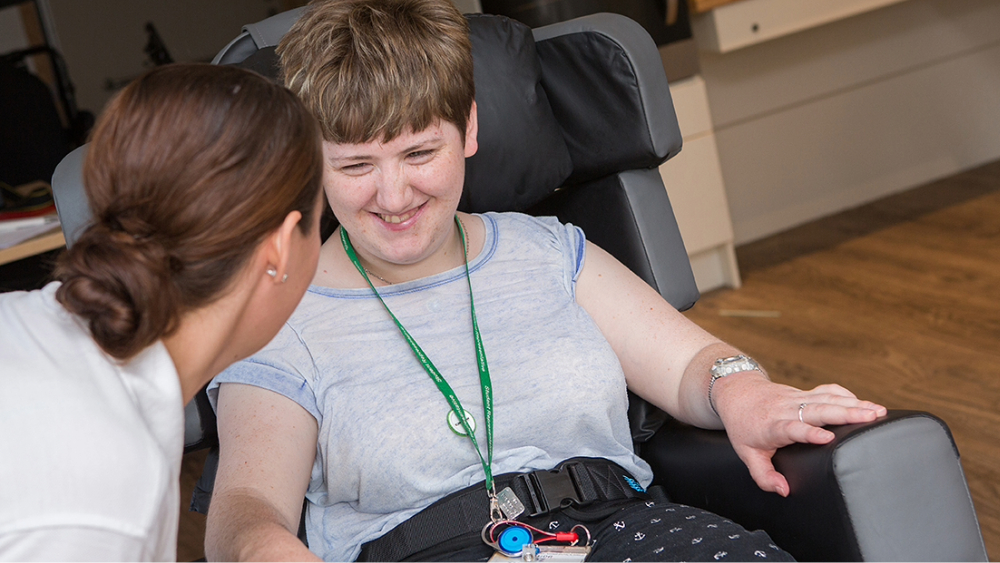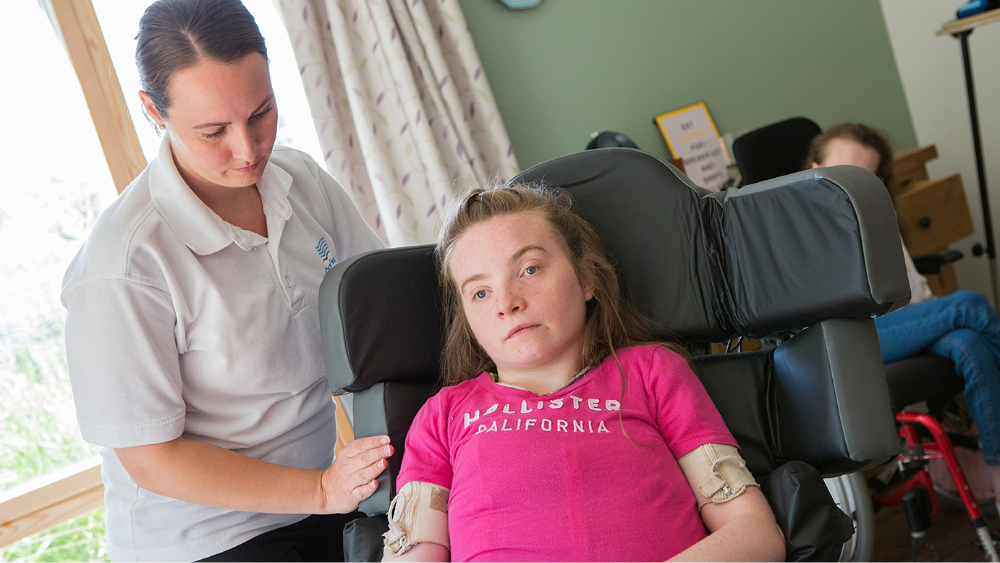As Health and Social Care Professionals, we have a significant role to play in promoting effective functional engagement and positive social interactions through postural care. Our connection with the physical environment and the people in it, particularly during seated activities, has profound implications for our overall health and wellbeing.1
In the context of therapeutic seating, understanding the dynamics of postural care can improve the quality of life of the individuals we work with. This blog aims to shine a light on the critical importance of postural care in sitting for engagement and interaction, and highlight the key principles of seating provision.
Understanding Postural Care
Postural care is a critical component of an individual’s 24-hour management plan, aimed at maximising their ability to function while minimising the risk of body distortion.2 Postural support during sitting isn’t just about maintaining body alignment and support, but it’s also about facilitating participation in daily life.
An inability to sit out comfortably and efficiently can result in individuals becoming confined to their bed with limited opportunities for socialising. Destructive postures can also restrict individuals from completing psychosocial and psychological functions reducing their independence, self-worth, and quality of life.
Loneliness and social isolation are twice as harmful as obesity to physical and mental health.3
Research indicates that an upright sitting posture can enhance self-confidence, increase positivity, and improve engagement with others.4 Therefore, promoting optimal positioning is not just physically beneficial, but it also fosters positive wellbeing.
Implications for Seating Provision
Our task is to facilitate functional sitting positions that enhance interpersonal communication and participation in activities of daily living. Here are a few key principles we should focus on:
Promoting pelvic stability
The foundation of effective postural care in sitting is a stable posture, which enables participation in social activities at home, school, or work, and as part of the community.5 Ensuring this can promote alignment, maintain balance, and increase comfort as the pelvis dictates what happens to the body segments above and below. A chair with adjustable dimensions, especially seat depth and seat width, is critical to stability and postural control.
Managing energy levels
Fatigue can significantly restrict the ability to engage in daily living, as well as having a negative impact psychologically and socially.6 An unsupported posture coupled with gravitational forces causes fatigue by making inefficient use of the body structure making sitting effortful. If an individual is low on energy, they may uneconomically use energy attempting to maintain an upright position, rather than engaging in the world around them. Energy conservation will make it easier for them to live a meaningful life; tilt-in-space, if safe and appropriate, can promote energy management by providing periods of rest without affecting the critical angles for sitting.
Supporting the head
Head control is essential for orientation, socialisation, and the development of communication skills.7 Supporting the head appropriately, through a range of headrests, in an upright midline position can have significant implications on the success of specialist seating for those who lack adequate postural control. A multi-adjustable back or an articulating head section can also offer optimum support for those with kyphoscoliotic presentations.
Facilitating eye contact
Eye contact is a crucial element in social encounters. An upright sitting position can offer a better line of vision for interaction and provide an increased ability to achieve cognitive tasks8, all precursors to improved participation.
Specialist seating solutions, like the ones we offer at CareFlex, are specifically designed to optimise postural support and comfort, while promoting engagement and interaction.
The Way Forward
To optimise postural care in sitting for functional engagement and social interaction, we need to adopt a holistic, personalised care approach. Postural assessments, individualised care plans, and ongoing monitoring are essential components of this process.
Implementing the right seating solution at the right time can truly transform lives, as body distortion is not inevitable.9
Let us remember that postural care is not about achieving the ‘perfect’ position, it is about enabling individuals to lead fulfilling, socially interactive lives. Specialist seating enables this through the power of adaptability, ensuring that positioning is responsive to the needs of the individual depending on the task at hand. Please do not hesitate to get in touch with us to discuss any seating needs or to book a free no-obligation seating assessment.
References
- Pope PM (2007) Severe and complex neurological disabilities: management of the physical condition London: Elsevier
- Hill S, Goldsmith L (2010) Biomechanics and prevention of body shape distortion Tizard Learning Disability Review 15(2):15-29
- Holt-Lunstad J, Smith T, Baker M, Harris T, Stephenson D (2015) Loneliness and Social Isolation as Risk Factors for Mortality: A Meta-Analytic Review Perspectives on Psychological Science 10(2):227-237
- Peper E, Lin IM (2012) Increase or decrease depression: How body postures influence your energy level Biofeedback 40(3):125-130
- Trefler E, Taylor SJ (1991) Prescription and positioning: evaluating the physically disabled individual for wheelchair seating Prosthetics and Orthotics International 15(3):217-224
- NHS (2020) Fatigue Available from: https://www.yourcovidrecovery.nhs.uk/managing-the-effects/effects-on-your-body/fatigue/
- Farley R, Clark J, Davidson C, Evans G, MacLennan K, Michael S, Morrow M, Thorpe S (2003) What is the evidence for the effectiveness of postural management? International Journal of Therapy and Rehabilitation 10(10):449-455
- Pountney TE, Mulcahy CM, Clarke SM, Green EM (2000) The Chailey Approach to Postural Management Birmingham: Active Design
- Public Health England (2018) Postural care and people with learning disabilities: guidance Available from: https://www.gov.uk/government/publications/postural-care-services-making-reasonable-adjustments/postural-care-and-people-with-learning-disabilities



